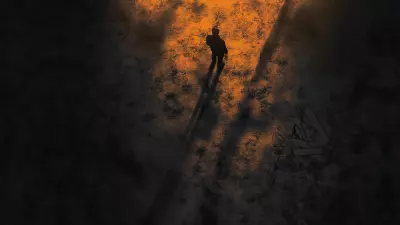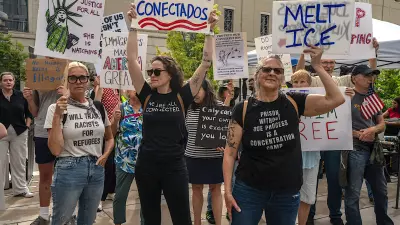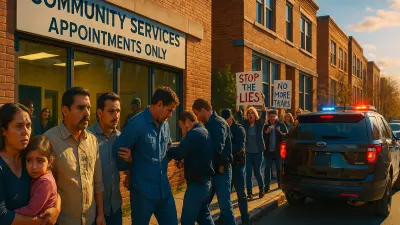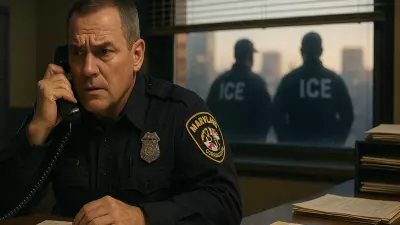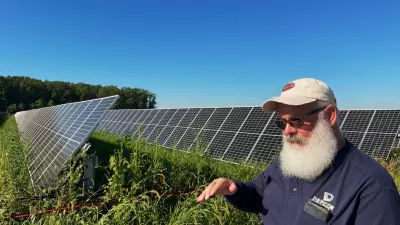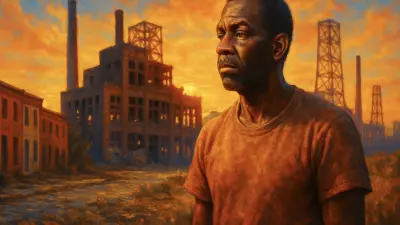A prominent Ukrainian author reflects on the cruelty and violence of the full-scale Russian invasion of her country, now entering its third year.

From time to time, I would think about death and my own mortality. Those thoughts were largely abstract—I’d never place someone else’s cause of death upon myself, but I would wonder whether I feared it or not. I rather feared the pain, because that’s what you want the least, as well as the realization of approaching death and the anticipation of it.
During the German occupation of Kyiv, a Roma woman told my father that he’d been twice-kissed by God, but he would die “not by his own death.” We often discussed with him what that might mean, sometimes veering into black humor territory, sometimes feeling the fear tiptoeing its way into our hearts in the face of something scary, magical, and unfamiliar.
When the full-scale invasion started, my neighborhood in Kyiv was close to the fighting, and I heard not just the missiles exploding, but the artillery, which seemed to be so near—only later we learned to calculate distances offhand, and understand how it all works. And I was thinking about death. For about a week, maybe even longer, before trying to go to sleep, me and my Kyiv girlfriends would say goodbye to each other with a certain air of fatality. With time, that passed.
There are several dimensions to fear: from the global, historically conditioned, existential, to local, even technical. Of course, every person has their own limit when it comes to pain, and to fear, and the adaptability and vulnerability of people varies. Some are more empathetic, with a more vivid imagination, while some concern themselves less with the experience and traumas of others. The support system, the location, the experience, and the ability to reflect all play a role here.
Aside from fears, there is also insecurity, anger, and imbalance, which feed those fears—and vice versa.
If we observe them as if they were paintings in a gallery on a guided tour, we notice the following:
Futurelessness. The inability to imagine yourself as far as a month in advance, because every day of your life may be your last. The overwhelming exhaustion from that, because people need to be able to imagine their life, development, to dream and make plans.
Uncertainty. You feel as if you’re standing on a tightrope over an abyss, but there’s no way of knowing where the tightrope and the abyss end. Taking responsibility for any decision you make in such circumstances is very scary, when that decision affects yourself and, often, other people. Stay here. Leave the country. Enlist. Make yourself useful in the rear.
The fear of a postponed life until “after victory.” This “after victory” may never come, or you might not make it until after victory. What “after victory” entails is also hard to imagine. The long common border. The wounded country with wounded people. The fear that waiting for victory may take years. What about now? Where are we now? This anxiety and fear age you faster than time.
The fear of being unable to remember what it’s like to live without war. A lot here depends on the level of real trauma, but some people experience panic during every air raid alert. For some, its consequences manifest on a physical level: eyes, chin twitching, frequent swallowing, hands in fists.
The fear of normalizing war. This helps us carry on, but it’s not normal, because war is not a normal state of being.
The fear for the physical safety of your child. It becomes more acute when you learn that a missile has killed someone’s child once again.
The fear of losing your home. Not as your possession, first and foremost, but as your world, your environment, your people—everything you’ve been working to create for years. Missile attacks continue even deep in the rear.
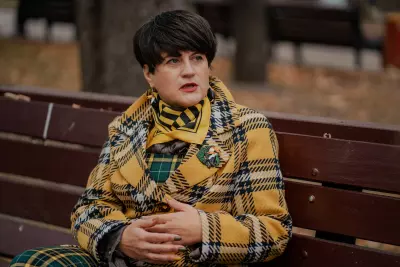
Author Larysa Denysenko // Image by The Ukrainians Media Photo Editor Danylo Pavlov
The fear of poverty. When infrastructure gets destroyed before your eyes—grain terminals, ports, thermal power plants, when businesses shrink and move abroad, and even big law firms appear shaken, it’s no longer about the abstract notions of “inflation,” “stagnation,” or “macroeconomic changes.” It’s about the here and now. Many people who left Kyiv in February 2022 and visit it now are shocked by the prices and wonder how we are surviving, and where the paid jobs come from.
The fear of economic dependence. Looks like we’ll be in a serious debt bondage for years.
The fear of temporary occupation, and with it, of the tactics and strategy of the Russian army: torture, deportation, filtration camps, kidnapping of civilians, sexual violence, murder.
The fear of draining. Fearing that every person in your immediate circle has someone who left, or someone who is at the front, or someone who has died/was killed. It’s hard not to think about it—it’s the draining of a city, of a nation. The fear of draining is very deep and existential.
The fear of being unheard, or screaming too much, or not saying enough; when people who have different experiences are unable to hear each other. The trauma either screams or silences, any word can hurt, and it’s easier to stop speaking in order not to traumatize the other person or yourself, and have conversations only in screams and silences.
The fear of ecological disaster, minefields, destruction, losses. If we superimpose upon the detailed map of Ukraine the mined areas, the destroyed towns, villages, fields, bodies of water, forests, it’s hard to not become horrified.
The fear of victimization. Why was this done to us? Why is this being done to us? Wouldn’t it be better to become invisible? The fear of genocide causes a classic reaction in people: freeze, run, assimilate, fight.
A fear that’s historically conditioned: the Russians want to destroy us, which means they will not stop—whereas the partners can get tired and abandon us. That means what’s left for us is dying in battle, running away, forgetting who we are.
The fear of militarization for a generation. The Ukrainian nation is generally freedom-loving and peaceful. We are not a nation of invaders—we rebelled against oppression for our independence, language, freedom, identity. Now the level of militarization and aggression is rising, and is likely to keep rising. So we’d better understand it, accept it, and learn to live with it.
I think anyone can write something else here. Or vice versa—hide it even deeper. Sometimes it seems that nobody else notices your hidden fears, and that you live in an illusory state of security.
However, some fears stimulate activity—you act, struggle, rage, and fight back, love harder. But from time to time, the combination of these pressures forces you into an emotional trench, where you learn to breathe deep again and can’t seem to hold onto your weapon. Then later, your grip on it will firm again, because fear can be understood—and it can be defeated.
Larysa Denysenko is a Ukrainian writer, lawyer, human rights activist, TV and radio presenter, and member of the PEN Ukraine, which protects freedom of speech and authors’ rights, promotes literature, and international cultural cooperation.
Please consider supporting The Ukrainians Media on Patreon to help protect Ukrainian independent journalism.

